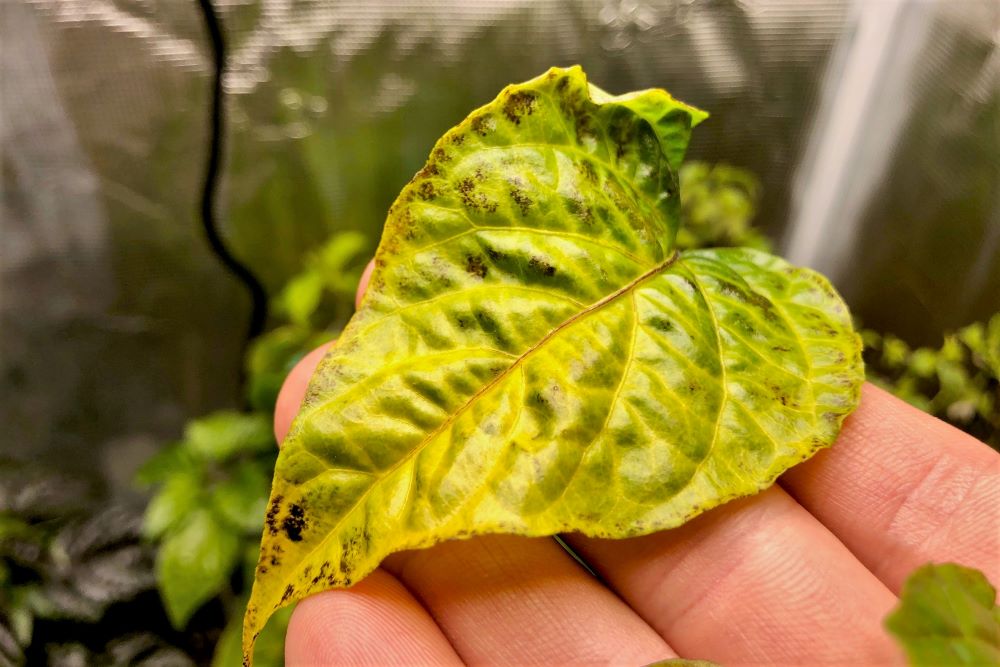Best Fertilizers for Peppers: Achieve Superior Results in Your Yard
Best Fertilizers for Peppers: Achieve Superior Results in Your Yard
Blog Article
Organic Vs. Synthetic Fertilizers: Which Is Best for Nurturing Healthy And Balanced Pepper Plants?
In the world of supporting healthy pepper plants, the choice between artificial and natural fertilizers stands as a crucial choice with far-ranging ramifications. While both options goal to give essential nutrients to sustain plant development, the nuances of their influence on the dirt, plant health, and the atmosphere spark an argument that mirrors throughout the horticulture area. Recognizing the unique advantages and potential risks of each fertilizer kind is crucial for pepper farmers looking for to maximize their returns while keeping an eco-conscious and sustainable method.
Benefits of Organic Fertilizers
Organic plant foods supply a lasting and environmentally-friendly approach to beneficial pepper plants, providing necessary nutrients without using synthetic chemicals. These all-natural fertilizers are stemmed from natural resources such as compost, manure, bone dish, and algae, promoting soil health and wellness and biodiversity. Unlike synthetic fertilizers, organic options release nutrients slowly, making certain a stable and balanced supply for pepper plants to flourish.
One significant advantage of organic fertilizers is their ability to improve soil structure and water retention. By improving dirt wellness, natural fertilizers advertise valuable microbial activity, which assists in nutrient uptake by pepper plants. Furthermore, organic fertilizers minimize the risk of chemical run-off, safeguarding water resources from pollution and securing the atmosphere.
In addition, organic fertilizers add to lasting soil fertility by promoting the growth of useful soil microorganisms. These microorganisms aid damage down natural issue, releasing nutrients in a type that is easily obtainable to pepper plants. best fertilizers for peppers. By promoting a healthy and balanced soil ecological community, organic plant foods sustain sustainable pepper cultivation methods that benefit both plants and the atmosphere
Drawbacks of Synthetic Plant Foods
Artificial fertilizers, in comparison to their natural counterparts, pose various downsides when made use of to nourish pepper plants, impacting both plant wellness and environmental sustainability. One significant drawback of artificial plant foods is their propensity to leach nutrients from the dirt rapidly.
Moreover, the overuse of artificial fertilizers can contribute to water contamination. Excess fertilizers not soaked up by plants can get rid of right into water bodies, bring about eutrophication, where algae blooms diminish oxygen degrees in the water, hurting aquatic life. Synthetic fertilizers are usually obtained from non-renewable resources, such as fossil fuels, adding to carbon exhausts and ecological degradation throughout their manufacturing.
Nutrient Absorption Contrast
Effective nutrient absorption plays a vital duty in the general health and wellness and growth of pepper plants. When comparing natural and artificial plant foods in terms of nutrient absorption, natural fertilizers have the benefit of providing a more well balanced and slow-release resource of nutrients (best fertilizers for peppers). Organic fertilizers have a selection of macro and micronutrients that are not only advantageous for the plants yet also promote healthy and balanced soil microbial activity, which helps in nutrient uptake. On the other hand, synthetic fertilizers usually supply a fast launch of nutrients, which can result in leaching and runoff, causing lower nutrient absorption rates by the plants.
Additionally, natural plant foods boost soil structure and water retention capability, allowing pepper plants to accessibility nutrients more efficiently. This enhanced dirt top quality promotes root development, making it possible for better nutrient absorption. Synthetic fertilizers, although originally enhancing plant growth because of their high nutrient concentrations, may prevent long-term nutrient absorption by derogatory soil health and wellness over time.
Ecological Influence Factors To Consider

On the various other hand, artificial fertilizers, although typically even more instantly readily available and concentrated to plants, can have detrimental results on the atmosphere otherwise applied correctly (best fertilizers for peppers). Their production calls for high energy inputs, resulting in greenhouse gas exhausts and adding to environment adjustment. The drainage of excess artificial plant foods can infect water sources, leading to eutrophication and harming marine communities.
Ideal Plant Food Practices for Peppers
When fertilizing pepper Related Site plants, enhancing nutrient uptake and reducing ecological influence are vital considerations. To attain this, it is important to adhere to best plant food methods tailored to the details needs of pepper plants. One vital practice is to perform a soil examination before applying any type of fertilizers. This test can identify the pH degree of the soil and recognize any kind of nutrient deficiencies, guiding you in selecting the most appropriate plant food formula.
One more vital practice is to fertilize pepper plants at the ideal time. Commonly, peppers take advantage of obtaining fertilizer at planting and after that again when they start to blossom. Over-fertilizing can lead to nutrient discrepancies and damage the plants, so it is crucial to comply with advised application rates.
Furthermore, picking a balanced fertilizer with an NPK proportion that matches pepper plants' demands is fundamental. Ultimately, integrating see this here artificial and natural plant foods deliberately can aid support healthy pepper plants while decreasing environmental impact.
Conclusion

Organic plant foods use an environmentally-friendly and sustainable technique to beneficial pepper plants, giving necessary nutrients without the usage of synthetic chemicals. Unlike synthetic plant foods, natural choices release nutrients gradually, ensuring a balanced and steady supply for pepper plants to flourish.
Synthetic plant foods, in contrast to their natural counterparts, present various drawbacks when used to nourish pepper plants, affecting both plant health and wellness and Look At This environmental sustainability. When comparing natural and artificial plant foods in terms of nutrient absorption, organic fertilizers have the benefit of supplying a much more well balanced and slow-release resource of nutrients.Additionally, natural fertilizers enhance dirt structure and water retention ability, permitting pepper plants to accessibility nutrients more effectively.
Report this page